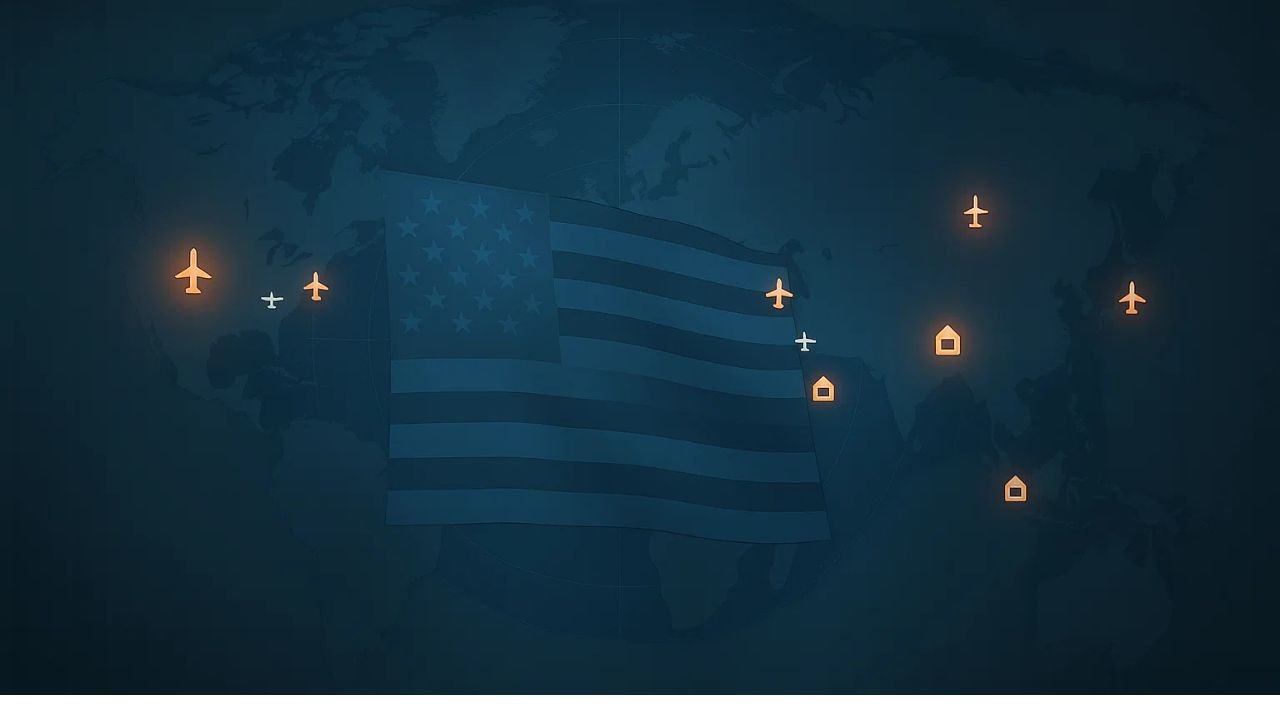Introduction
The United States maintains one of the largest and most strategically positioned networks of military air bases across the world. These bases serve multiple purposes, from rapid response and surveillance to maintaining global dominance. But where are these bases located, when were they built, and why?
Table of Contents
Why Does the U.S. Build Air Bases in Other Countries?
- Strategic Military Reach
- To ensure rapid deployment in case of conflicts or emergencies.
- Geopolitical Influence
- Reinforce alliances while countering the influence of adversaries such as China, Russia, and Iran..
- Counter-Terrorism & Surveillance
- Air bases help in drone strikes, reconnaissance, and monitoring terrorist activities.
- Humanitarian & Disaster Relief
- Quick assistance during natural disasters in nearby regions.
List of Major U.S. Air Bases in Foreign Countries
1. Ramstein Air Base – Germany
- Established: 1952
- Purpose: HQ for U.S. Air Forces in Europe; supports NATO operations.
- Details: Largest U.S. military base outside America.
2. Al Udeid Air Base – Qatar
- Established: 2003 (U.S. expanded existing base)
- Purpose: Central hub for U.S. operations in the Middle East.
- Details: Houses 10,000+ personnel; used in Iraq & Afghanistan wars.
3. Osan Air Base – South Korea
- Established: 1952 (Korean War)
- Purpose: Defense against North Korea; intelligence and missile monitoring.
- Details: Hosts USAF’s 7th Air Force.
4. Misawa Air Base – Japan
- Established: 1945 (post-WWII)
- Purpose: Joint U.S.-Japan base; Northeast Asia monitoring.
- Details: Used for intelligence gathering on China and North Korea.
5. Diego Garcia – Located in the British Indian Ocean Territory
- Established: 1971
- Purpose: Strategic bomber base; key in Gulf War, Iraq & Afghanistan.
- Details: Remote location allows stealth operations.
6. Incirlik Air Base – Turkey
- Established: 1955
- Purpose: NATO alliance; nuclear weapons storage.
- Details: Used for Middle East missions and anti-ISIS operations.
7. Thule Air Base – Greenland
- Established: 1951
- Purpose: Arctic surveillance; missile warning system.
- Details: Closest U.S. base to the North Pole.
8. Andersen Air Force Base – Guam
- Established: 1944 (WWII)
- Purpose: Key role in Indo-Pacific strategy.
- Details: Supports B-52 bombers and air-refueling missions.
9. Morón Air Base – Spain
- Established: 1953
- Purpose: Transit point between U.S. and Middle East.
- Details: Used in Libya and North Africa missions.
10. Camp Lemonnier – Djibouti
- Established: 2002 (leased from France)
- Purpose: Counter-terrorism in Horn of Africa & Yemen.
- Details: Drone operations against Al-Shabaab and AQAP.
Former U.S. Air Bases
- Clark Air Base – Philippines
- Closed in 1991 after Mt. Pinatubo eruption and end of Cold War.
- Manas Air Base – Kyrgyzstan
- Closed in 2014; used during the Afghanistan war.
Why Countries Allow U.S. Bases on Their Soil
- Defense Protection
- The U.S. provides military protection in return for permission to establish bases.
- Economic Benefits
- Bases create jobs and infrastructure.
- Political Alliances
- Strengthens bilateral or NATO relationships.
Controversies and Criticism
- Sovereignty Issues
- Locals often feel their nation’s independence is compromised.
- Civilian Casualties
- Drone operations from these bases have led to collateral damage.
- Environmental Impact
- Military activities harm local ecosystems.
Conclusion
American air bases around the world are more than just military posts — they are tools of diplomacy, security, and influence. Understanding where they are and why they exist helps decode modern geopolitics and global military strategy.
